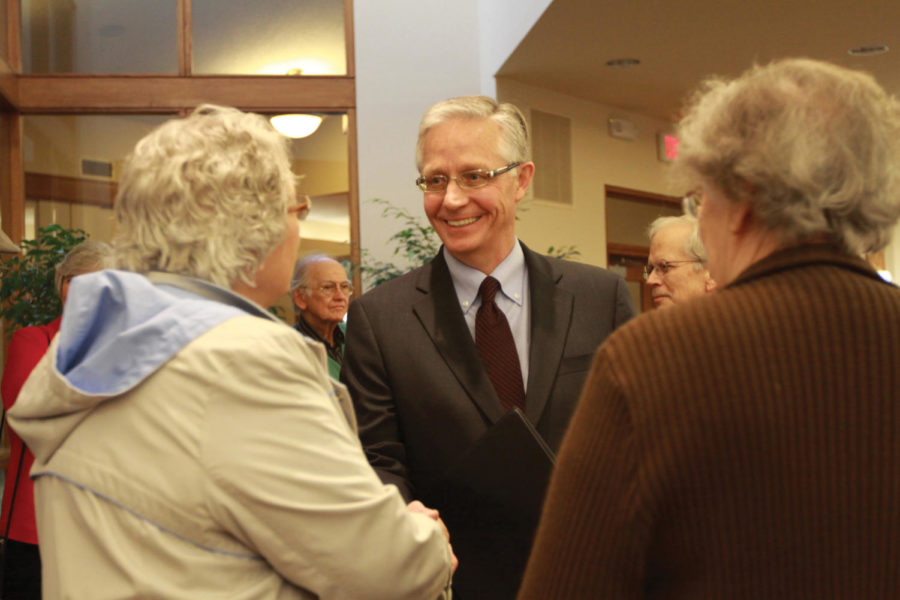Chief Justice speaks on court system value and vision
March 22, 2012
Chief Justice Mark Cady of the Iowa Supreme Court spoke of the importance of an impartial and fair judicial system and the need to uphold a judicial selection process that ensures Iowa courts will remain free from political influences at a meeting of the Iowa League of Women Voters on Thursday.
Cady addressed the 78 people in attendance on the “fundamental concept of judicial independence” as he explained the founding fathers’ vision of the American judicial branch.
“It is that branch [the judicial branch] of government that maintains the constitutional form of governing as we walk through life … to make sure that that Constitution is followed,” Cady said.
Cady explained the “institutional” and “personal judicial independence” that are major concepts in keeping not only political bias, but popular public opinion, outside the decisions of the courts.
On Nov. 2, 2010, Iowa voters chose not to reappoint Iowa Supreme Court Chief Justice Marsha Ternus, Justice David Baker and Justice Michael Streit. This came after the Iowa Supreme Court decision in the Varnum v. Brien case ruled an Iowa marriage statute was unconstitutional. The statute was one that made gay marriage illegal.
“The Iowa Supreme Court has played out its role just as it had been envisioned,” Cady said. He explained this non-retention of judges was the first time in Iowa history that a civil rights case decision was wanting to be reversed by the public.
“It showed the vulnerability of Iowa judicial selection,” Cady said on the three judges losing their positions, “and judges became vulnerable for doing their jobs. The job done … was the same job that the court had always done in every single civil courts case in the past.”
On April 3, 2009, the Iowa Supreme Court justices unanimously agreed that Iowa Code section 595.2 violated the equal protections clause of the Iowa Constitution. This clause, section six of the Iowa Bill of Rights, states, “The general assembly shall not grant to any citizen, or class of citizens, privileges or immunities, which, upon the same terms, shall not equally belong to all citizens.”
Cady, who was the author of the case and not the chief justice at that time, said that the court’s responsibility was “to protect constitutional rights of individuals from legislative enactments that have denied those rights, even when the rights have not yet been broadly accepted, were at one time unimagined or challenge a deeply ingrained practice or law viewed to be impervious to the passage of time.”
Cady made it clear that the courts were not in place to go against the government or the people, but to work with them to uphold the Constitution.
“The duty of the courts … has been to protect the supremacy of the Constitution as well as the freedoms within that document,” Cady said. “We must place them [issues within court cases] beyond the reach of the majority and the public officials.”
Though Cady said he felt that judicial independence and the court systems had been “threatened” by the loss of the justices, he also said the judicial retention process “belongs to the people, and they should be left to do it.”
There are seven judges on the Iowa Supreme Court at a time. Each Supreme Court justice must appear on the ballot every eight years, which decides if they will retain their position. The other five judges were not up for retention at the time.
Four justices will be on the ballot in November for retention. One of them, Justice David Wiggins was involved with the decision of the Varnum v. Brien case.







